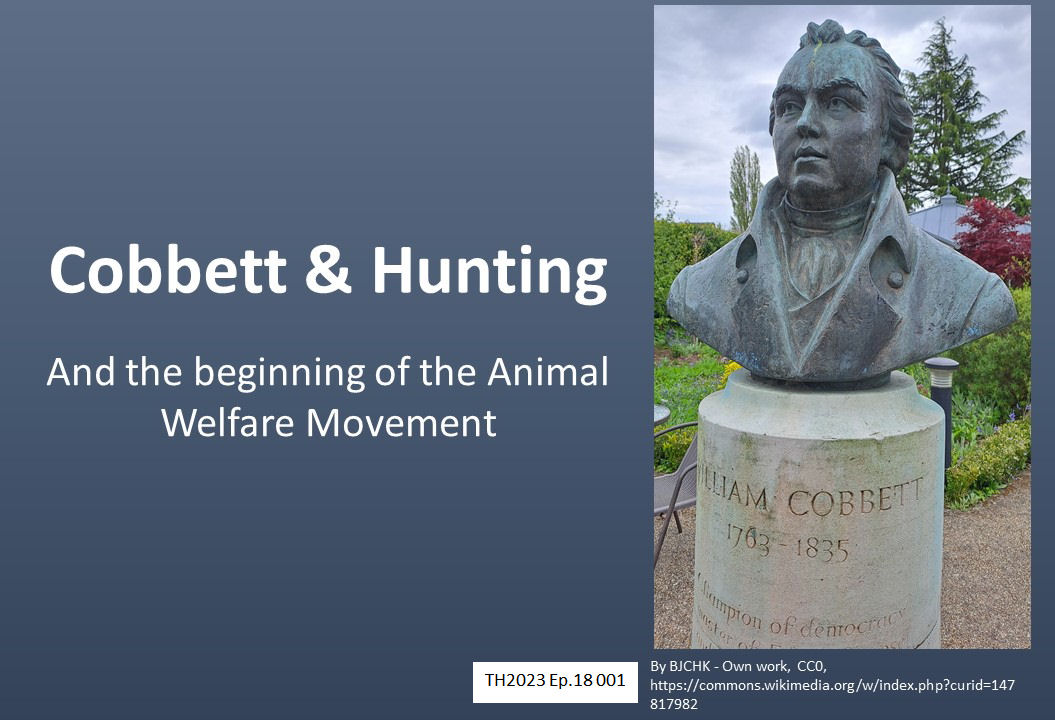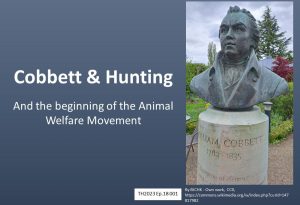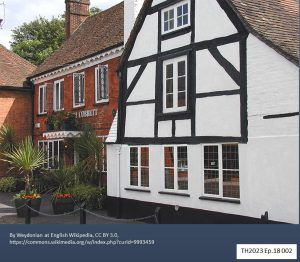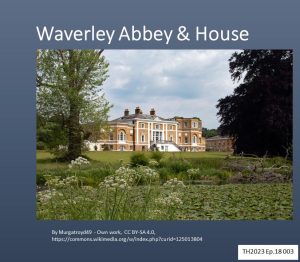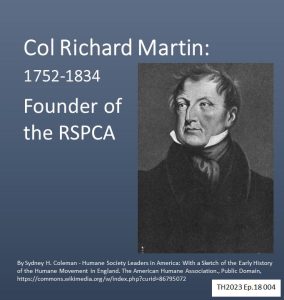Podcast: Play in new window | Download (Duration: 36:55 — 33.8MB)
Season 2023 – Talk 19- William Cobbett and Hunting
In ‘William Cobbett and Hunting’ Richard Thomas tells us about ‘field sports’ during William Cobbett’s lifetime.
Click a thumbnail below to view the image gallery that accompanies the talk.
William Cobbett:
A countryman learning, as a child and young man, all the skills one needs to be a successful farmer. He farms in Botley, Hampshire, lives to the age of 72 and dies on his farm near Woking.
In his life he does lots of other things. The best known journalist of his age; using his energy and influence to agitate for reform.
He joins the army. Goes into exile in the USA. Spends time in prison for seditious libel. He attacks virtually every politician of the time and publishes the Political Register each week for around 35 years, until he dies.
With his quill pen he writes 20 million words about things as varied as English grammar, history of the Protestant Reformation, the cottage economy and, most famously, his Rural Rides which is still in print. The Penguin edition is available from Waterstones.
His enjoyment of hunting:
Richard ignores all his writing and political agitation and tells us about his interest in field sports, particularly fox and hare hunting which, in the late 18th and early 19th Centuries, are as natural as breathing to country people like Cobbett. Simply a part of daily life, a part of the rural culture everywhere in Britain.
In his autobiography Cobbett tells us that ‘there is a little hop garden near Moor Park in which I used to work from eight to ten years old, from which I have scores of times run in order to follow the hounds, leaving the hoe to do the best it could to destroy the weeds’.
The beginning of the animal welfare lobby:
In 1789 Jeremy Bentham writes ‘the question is not, can they reason, or can they talk, but can they suffer?’. Whilst Cobbett enjoys hunting he knows, as a farmer, that a well treated and well fed cow gives more milk, and that a well treated horse is much pleasanter and much safer to ride.
In Cottage Economy, he emphasises the importance of looking after the animals on which the farmers depend. He says ‘it is good for children to learn that the care is all.’
In reality there could be little change whilst the major landowners have control over parliament as before the 1832 Reform Act the urban vote hardly matters.
The changes during the 19th and 20th Centuries that lead to the 2004 Hunting Act will be in the second part of Richard’s talk.
Listen to Richard tell the full story .
About this podcast:
This is an edited recording of a talk given to the Farnham u3a World History: Ancient, Medieval and Modern Group.
This podcast is also available through Amazon Music, Apple Podcasts, Castbox, Deezer, Podchaser, Spotify, Stitcher , Vurbl , You Tube and others.
AKM Music licenses Media Magazine for use with this talk.
© The MrT Podcast Studio and Farnham u3a World History: Ancient, Medieval and Modern Group 2018 – 2024

